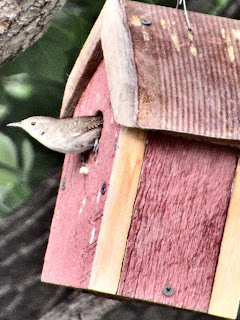Post by Doris McCraw
writing as Angela Raines
 |
| Photo property of the Author |
Charles Aiken. Have you heard of him? He presents an example of examing history through a modern lens, while still trying to understand the time in which he lived.
Charles E. H. (Edward Howard) Aiken was born September 7, 1850, in Vermont. The family was in Illinois by 1853 when the family had their daughter Katherine. After the 1871 Chicago Fire, which destroyed the family business, they moved to Colorado.
In 1868, at the age of eighteen, he began his study of birds. His method, shooting and collecting them. He continued his studies after the family moved to Colorado.
 |
| Photo from Find A Grave |
Personally, the thought of killing an animal just for study purposes is like being back in high school biology class and dissecting frogs. I found that so creepy. Yet, in Aiken's time, that was the standard practice. Was that right or wrong? I think you might find people who would answer in the affirmative in both cases.
Yet, Aiken, because of his love of birds ended up making an impact on the knowledge of Birds of the West. Aiken not only studied birds but also mounted a number of them. AT the time of his death he had a collection of some 5,700 skins, mounted specimens, nests, and eggs.
According to the Audobon Society, his hearing was keen, he could recognize birds by their plumage, and could imitate many of them. For those who are interested, you can see an online version of his book "The Birds of El Paso County, Colorado. Bird of El Paso County
 |
| Headstone in Evergreen Cemetery |
Aiken died in 1836 at the age of eighty-five in Colorado Springs, Colorado. His collection was purchased in 1907 by Colorado College. (Yes, I've seen a portion of it)
Here is an overview of his contributions: bionomia. Species identified by Aiken
So the question is, how do we look at Aiken and his contribution? Was he what we might call a 'bird whisperer? Where does his destruction of a bird fit in? There were no cameras, as we know it when he began his journey. That he made major contributions is undeniable. I still have not made up my mind about the questions.
 |
| Photo property of Author |
Colorado and Women's History


Doris, I like to live at peace with the deer, armadillos and possums, but have no compunction at sending rodents, reptiles, and insects to an early death. As long as people are not practicing torture, I feel like I must accept man's dominion over animals and some things as part of the cycle of life. People in earlier times accepted death much more easily than we do now. Thanks for an interesting and thoughtful post.
ReplyDeleteVicky, I love and appreciate your feeeback. His work helped to identify so many birds and their habitats. I've always found his work and life fascinating. Doris. PS I'm with you on the rodents, etc.
DeleteOh...what...a...question. I had never heard of him, Doris, or knew about this practice of his. Yes, one can see how this would have contributed vastly to the advancement of knowledge about the birds of the west...but as I've gotten older, I've gotten more and more "changed" about how I feel about killing animals for any reason. I'm trying to eat less and less meat. Raised in beef country, it's hard to give up something we've eaten since childhood. But that idea that it's okay to kill "just animals" for any reason we please is not right, either, IMO. I know I'll be thinking about this for a long time to come. Animal experimentation is a definite no-no in my book, and this is 'close' to it, but at least the birds didn't suffer, hopefully. Still thinking...
ReplyDeleteLike you, Cheryl, I struggle with the question. Even as a child, I'd go through no-meat phases and eveyone would be so concerned. My family even owned a butcher shop for a time.
DeleteAt the same time, these early 'scientist' have given us so much knowledge. Doris
I agree that such behavior seems cruel to us nowadays but back then there really weren't many other options. He could have painted or sketched the birds -- maybe he was a poor artist. He could have trapped them, studied them in cages, then let them go. That would be traumatic for the animals. Or he could have done what he eventually chose to do. It's not what we today would choose, but with no good cameras or tracking equipment, he had fewer choices.
ReplyDeleteIt speaks to how I look at history and how I interpret it. Your thoughts are on point with what I struggle with each time I dig into the past. Thanks for your insight. Doris
Delete